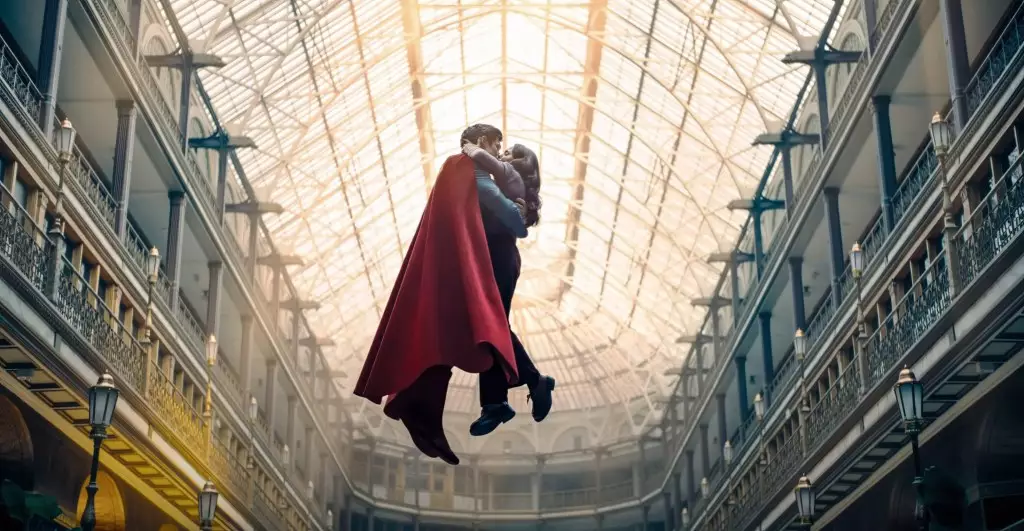The imminent release of the latest Superman film marks a pivotal moment for Warner Bros. and the broader DC franchise. After years of missteps, tarnished branding, and inconsistent tones, the studios now place their hopes on what could be a fresh reboot promising a new era. Under the banner “Gods and Monsters,” insiders and fans alike are cautiously optimistic—yet beneath that lies a core question: can a franchise so historically plagued by failure and missed opportunities truly restore itself?
Peter Safran and James Gunn, the architects of this revival, are taking bold risks, chief among them Gunn’s decision to write, direct, and produce Superman himself. Such a hands-on approach underscores both confidence and hubris. Gunn’s gamble reflects a desire to craft something distinctive—an optimistic yet grounded hero embarking on a heroic journey that eschews the dark, nihilistic themes that dominated recent incarnations under Zack Snyder and Christopher Nolan. But does a director tightly controlling every aspect of a high-stakes franchise truly guarantee success? The answer is complicated, especially given the franchise’s troubled history.
Historically, Superman has been a critical cornerstone of Warner Bros.’ comic book ambitions. The character introduced filmmakers to the blockbuster universe, with the 1978 Richard Donner classic setting the gold standard. Yet, subsequent decades revealed a pattern: promising starts followed by decline—often due to mismatched tone, underwhelming storytelling, or an overreliance on spectacle at the expense of character depth. The 2006 “Superman Returns” was a well-meaning homage that stumbled with its high production costs and lack of narrative daring, while Snyder’s “Man of Steel” attempted a darker reboot that polarized audiences, especially with the tone of “Batman v. Superman.”
What makes the current reboot potentially different is its attempt to strike a balance. Early reviews, at 85% certified fresh, suggest that Gunn’s film might finally resonate with audiences craving optimism unmarred by cynicism. Still, this is where skepticism must be emphasized. The franchise’s track record of diminishing returns looms over even the best reviews. Evaluating whether this Superman can turn around the franchise requires more than just positive reception; it demands a cultural and commercial renaissance.
Financial Prospects in a Fragmented Market
Of course, box office performance remains the ultimate litmus test. Warner Bros. expects a formidable international opening, with projections of at least $200 million globally across 60,000 screens. Domestically, pre-sale figures hold promise: $20 million, placing the film ahead of “Guardians of the Galaxy Vol. 3” but slightly behind “Ant-Man and the Wasp: Quantumania.” These figures hint at a solid start, but in a landscape increasingly dominated by streaming and shifting audience habits, can Superman’s box office recapture the cultural zeitgeist?
The trend for superhero movies over the past decade has been a rollercoaster. Warner Bros.’ previous attempts with the Man of Steel character brought in hundreds of millions globally, yet not enough to consistently sustain franchise momentum. The original 1978 Superman, with its innocent charm and hopeful tone, grossed over $300 million worldwide—a monumental success at the time. Yet, subsequent efforts, particularly the abysmal “Superman IV: The Quest for Peace,” marked a nadir for the character’s box office appeal.
Snyder’s “Man of Steel” and “Batman v. Superman” saw initial success but failed to ignite the broad enthusiasm necessary for a lasting franchise. The critical consensus was mixed at best, and the subsequent Justice League film was a box office disappointment. This historical context underscores a harsh reality: even when Superman hits the screens with considerable star power and impressive visuals, it’s no guarantee of an enduring franchise revival. The true test will be whether Gunn’s film manages to shatter past disappointments and lay a foundation for sustained popularity.
Financially, the key challenge is capturing the imagination of both core fans and a wider audience. Superman’s legacy, while iconic, has sometimes become a liability, perceived by some as too nostalgic or ingrained in a dated portrayal of heroism. To succeed, the film cannot merely rely on the character’s reputation; it must reimagine him compellingly for contemporary viewers—an endeavor that demands more than just impressive marketing and high box office openings.
The Cultural and Commercial Stakes
The arrival of Superman in theaters worldwide carries much more than just a potential box office payday; it is a statement of Warner Bros.’ resilience and strategic resolve. The studio’s decision to sideline the character for years, in favor of darker, more fractured narratives, was in part a response to audience fatigue with grim, brooding superheroes. Now, with Gunn’s optimistic take, there’s a chance to recalibrate the cultural perception.
However, the challenge lies in consistency. The franchise’s previous struggles reveal that even the most talented directors and the most beloved characters cannot solely rely on nostalgia or iconic status. They must be part of a larger, coherent vision that aligns with modern tastes and social sensibilities. Playground storytelling, driven by earnestness and clear moral values, may find a receptive audience—not just for kids but for adults craving a sense of hope rather than despair.
Moreover, the marketing campaign underscores a strategic move to elevate Superman beyond the typical comic book movie spectacle. High-profile international promotions, such as Superman’s sculpture atop London’s Shard, demonstrate an ambitious effort to embed the character into global cultural consciousness. This is a direct response to the franchise’s previous failures to fully leverage its iconography; Warner Bros. appears to be betting that this reboot, if executed well, can revive Superman’s mythos in public imagination and in the box office.
If Gunn’s film manages to both impress critics and convert audiences into believers once again, it can signal a turning point—not just for Superman, but for Warner Bros.’ entire approach to franchise building. Yet, the real test remains in whether this film can transcend the baggage of its predecessors and establish a stable, profitable foundation for future installments. Superman’s legacy is complicated, and while the stars seem aligned for restoration, only time will determine if this is a genuine renaissance or just another fleeting flash of hope.

